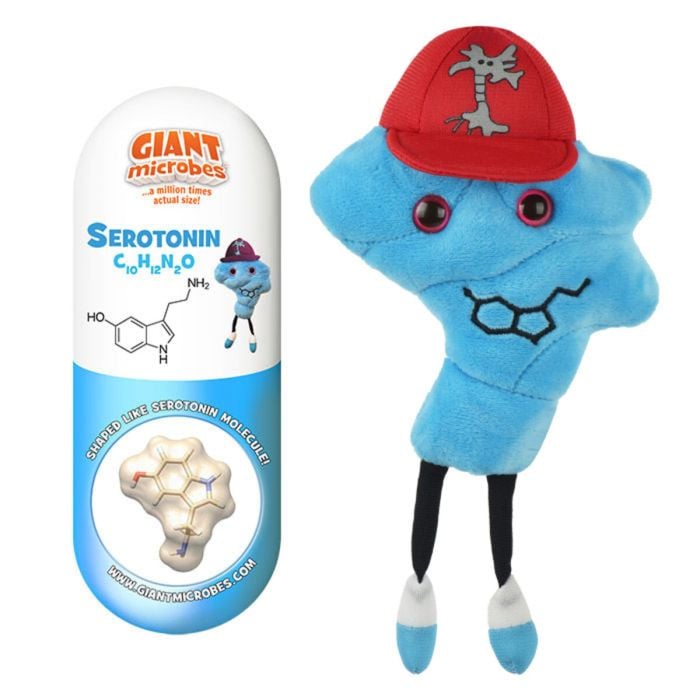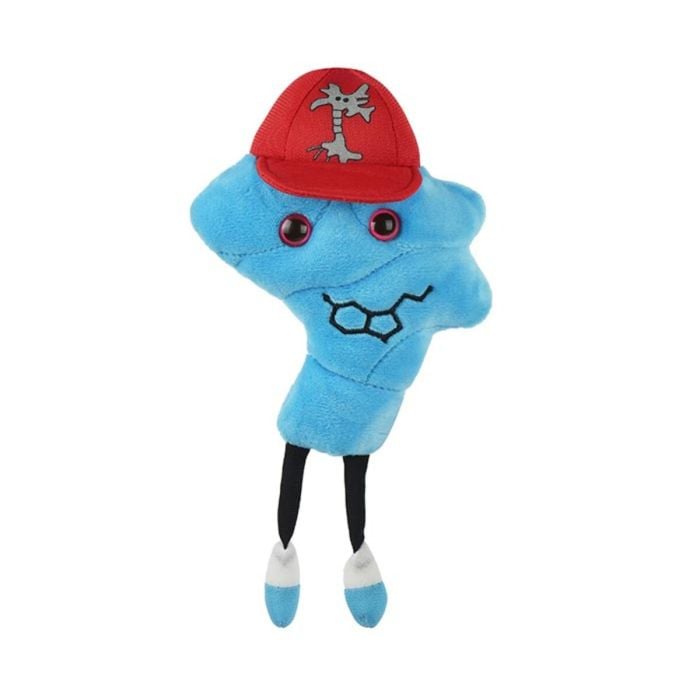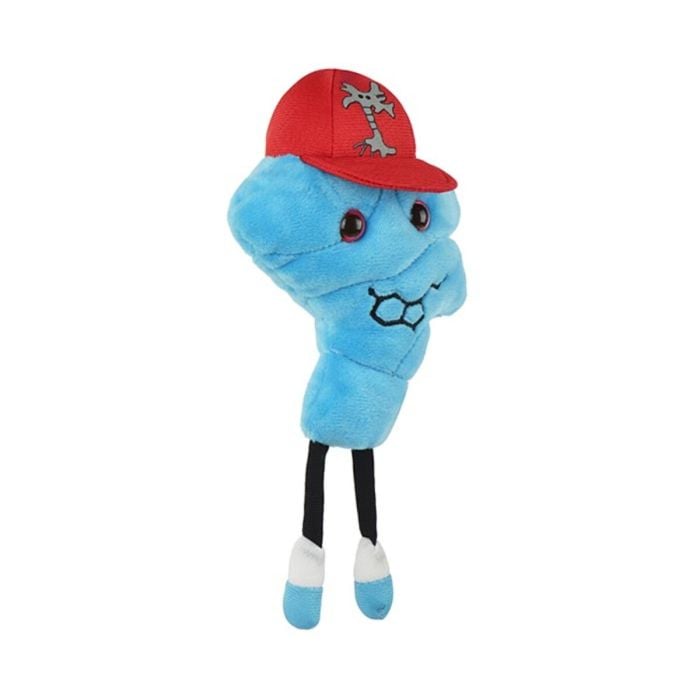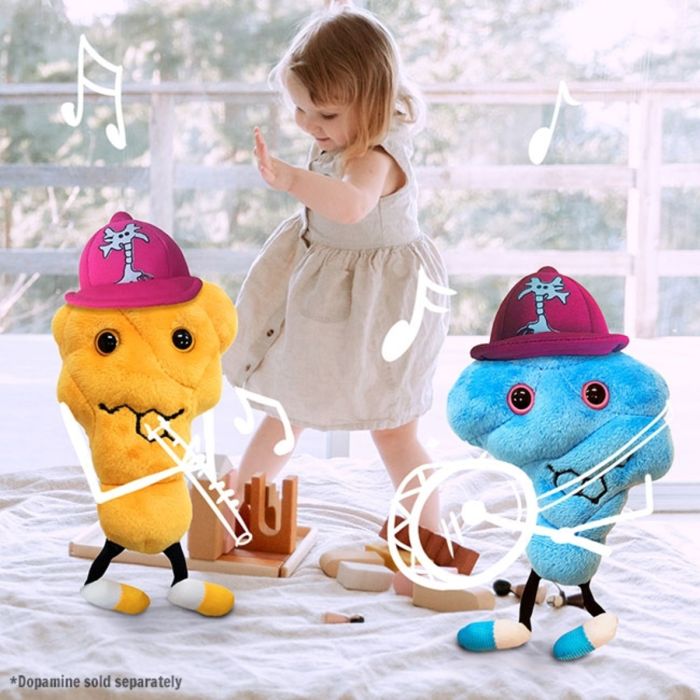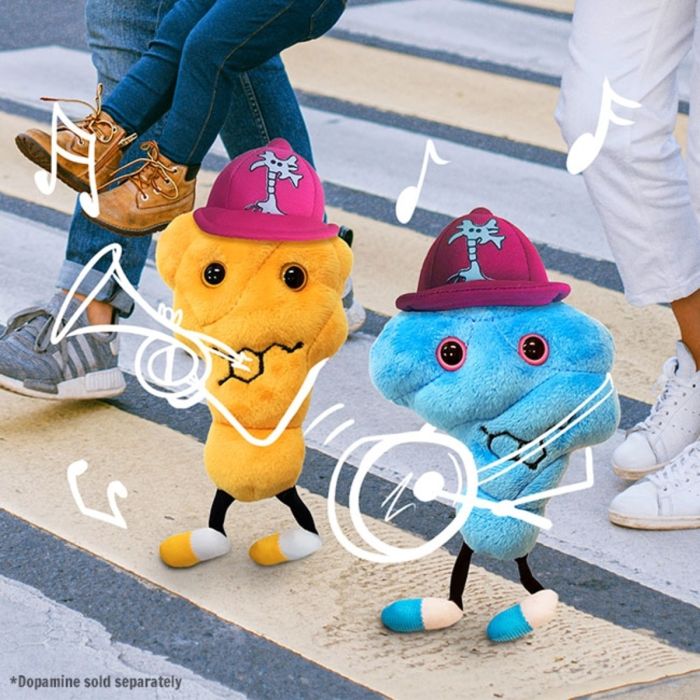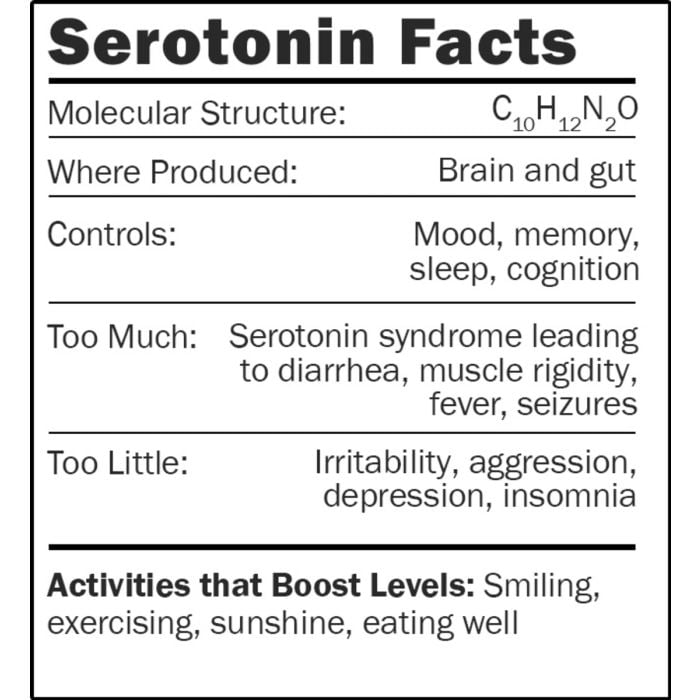Serotonin
Serotonin is a neurotransmitter that plays a role in mood, memory, sleep and cognition. Our Serotonin is based on the shape of the actual molecule!
This adorable plush representation of Serotonin provides a fun hands-on-way to learn about neurotransmitters, mental health, brain science and the body. Makes a memorable and unique gift for friends, family, scientists, therapists, educators, doctors, nurses, psychologists, psychiatrists, neurology experts and anyone interested in minds!
Features detailed stitching and includes an educational printed card with fascinating facts about this brain chemical.
Size: 7 x 3 x 2”
Check out our Brain Science infographic hereProduct Details
Additional Information
| Sizes | Giantmicrobes are based on actual microbes, cells, organisms and other critters, only 1,000,000 times actual size! Gigantic (GG) 16-24" XL (XL) 10-15" Original (PD) 5-8" Keychain (KC) 2-4" with clip |
|---|---|
| Materials | Plush from all new materials. Stuffed with polyester fiber fill. Surface washable: sponge with water & soap, air dry. |
| Packaging | Each plush microbe includes a printed card with fun, educational and fascinating facts about the actual microbe or cell. |
| Safety | Every product meets or exceeds U.S. and European standards for safety. For ages 3 and up. |
All about Serotonin

Serotonin Facts:
Serotonin is a neurotransmitter that influences your mood, memory, sleep and cognition. It can constrict blood vessels and regulate body temperature. Because serotonin helps control the stream of information moving across the pathways of the brain, it exerts a powerful effect on your thoughts and state of mind. Since 1921, when Otto Loewi first discovered neurochemical messengers, many different neurotransmitters have been identified. Serotonin and dopamine are two of the best known.
Nerve messages travel along neurons as tiny pulses of electricity. To cross the tiny gaps between neurons, the messages convert into a chemical form. In just a few thousandths of a second, molecules of serotonin jump the gap, attach to receptor sites of a receiving neuron and set off another nerve impulse. The biochemical mechanisms are complex since neurotransmitters may excite or inhibit a neuron from sending a signal.
High levels of serotonin can occur from certain medications, illegal drugs or dietary supplements. This is often called serotonin syndrome and can lead to shivering, diarrhea, muscle rigidity, fever and even seizures. Low levels of serotonin can cause irritability, aggression, depression and insomnia.
Serotonin also plays a key role in psychiatric disorders such as depression and anxiety. Antidepressants such as Prozac can boost serotonin levels by inhibiting the reabsorption (or reuptake) of serotonin, so it remains in the synapse longer and enhances its effect.
Certain activities may help boost serotonin levels such as smiling and exercise. Sunshine, foods containing tryptophan (such as eggs, tofu, salmon) and foods that fuel healthy gut bacteria are also a good way to stay positive about your serotonin.














